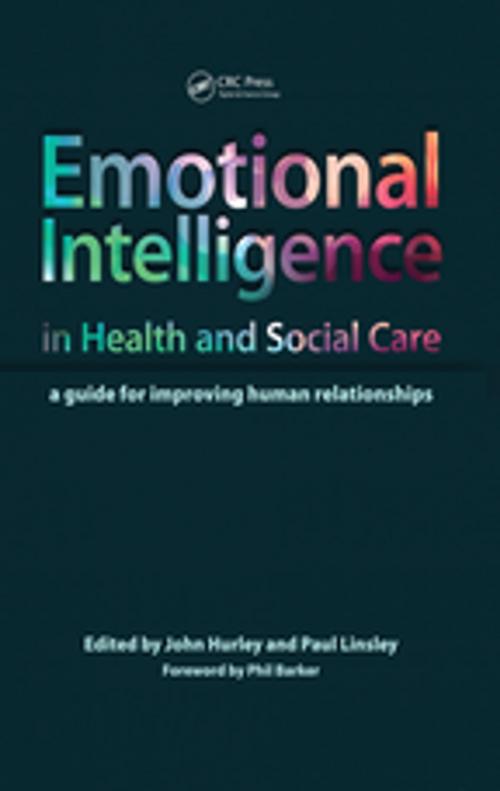Emotional Intelligence in Health and Social Care
A Guide for Improving Human Relationships
Nonfiction, Health & Well Being, Medical, Specialties, Clinical Medicine| Author: | John Hurley, Paul Linsley | ISBN: | 9780429895692 |
| Publisher: | Taylor and Francis | Publication: | February 21, 2018 |
| Imprint: | Routledge | Language: | English |
| Author: | John Hurley, Paul Linsley |
| ISBN: | 9780429895692 |
| Publisher: | Taylor and Francis |
| Publication: | February 21, 2018 |
| Imprint: | Routledge |
| Language: | English |
'While emphasising caring for others, this book also place great importance on the practitioner caring for and developing themselves. Contemporary care environments place high demands upon students and practitioners of all disciplines. We want practitioners to do more than simply survive these environments, we want practitioners to thrive and feel enabled to lead themselves and others.' John Hurley and Paul Linsley, in the Preface Emotional intelligence is centred in self-awareness, empathy and leadership, as well as communication, relatedness and personal resilience. This book adopts a fresh approach to personal and professional development in healthcare by applying emotional intelligence to a range of clinical and educational contexts..This practical, user-friendly guide engages the reader on both an emotional and a cognitive level, offering an energising way for healthcare professionals to work more effectively as individuals and as part of a team. The activities provided are thought-provoking for personal study and ideal for session planning in larger groups. Emotional Intelligence in Health and Social Care is recommended for all educators and students of medicine, nursing, social care and the Allied Health Professions. When I began my professional training over forty years ago the curriculum paid no attention to the 'stuff' of the 'emotions'. However, when faced with the confusion of real people, and the uncertainty of decision making, I - like everyone else - had to draw on my emotions; feeling my way towards a different kind of knowledge. A book like this might have helped me come to a different understanding of what I needed to do to help myself to coexist with, work alongside and help others. From the Foreword by Phil Barker
'While emphasising caring for others, this book also place great importance on the practitioner caring for and developing themselves. Contemporary care environments place high demands upon students and practitioners of all disciplines. We want practitioners to do more than simply survive these environments, we want practitioners to thrive and feel enabled to lead themselves and others.' John Hurley and Paul Linsley, in the Preface Emotional intelligence is centred in self-awareness, empathy and leadership, as well as communication, relatedness and personal resilience. This book adopts a fresh approach to personal and professional development in healthcare by applying emotional intelligence to a range of clinical and educational contexts..This practical, user-friendly guide engages the reader on both an emotional and a cognitive level, offering an energising way for healthcare professionals to work more effectively as individuals and as part of a team. The activities provided are thought-provoking for personal study and ideal for session planning in larger groups. Emotional Intelligence in Health and Social Care is recommended for all educators and students of medicine, nursing, social care and the Allied Health Professions. When I began my professional training over forty years ago the curriculum paid no attention to the 'stuff' of the 'emotions'. However, when faced with the confusion of real people, and the uncertainty of decision making, I - like everyone else - had to draw on my emotions; feeling my way towards a different kind of knowledge. A book like this might have helped me come to a different understanding of what I needed to do to help myself to coexist with, work alongside and help others. From the Foreword by Phil Barker















